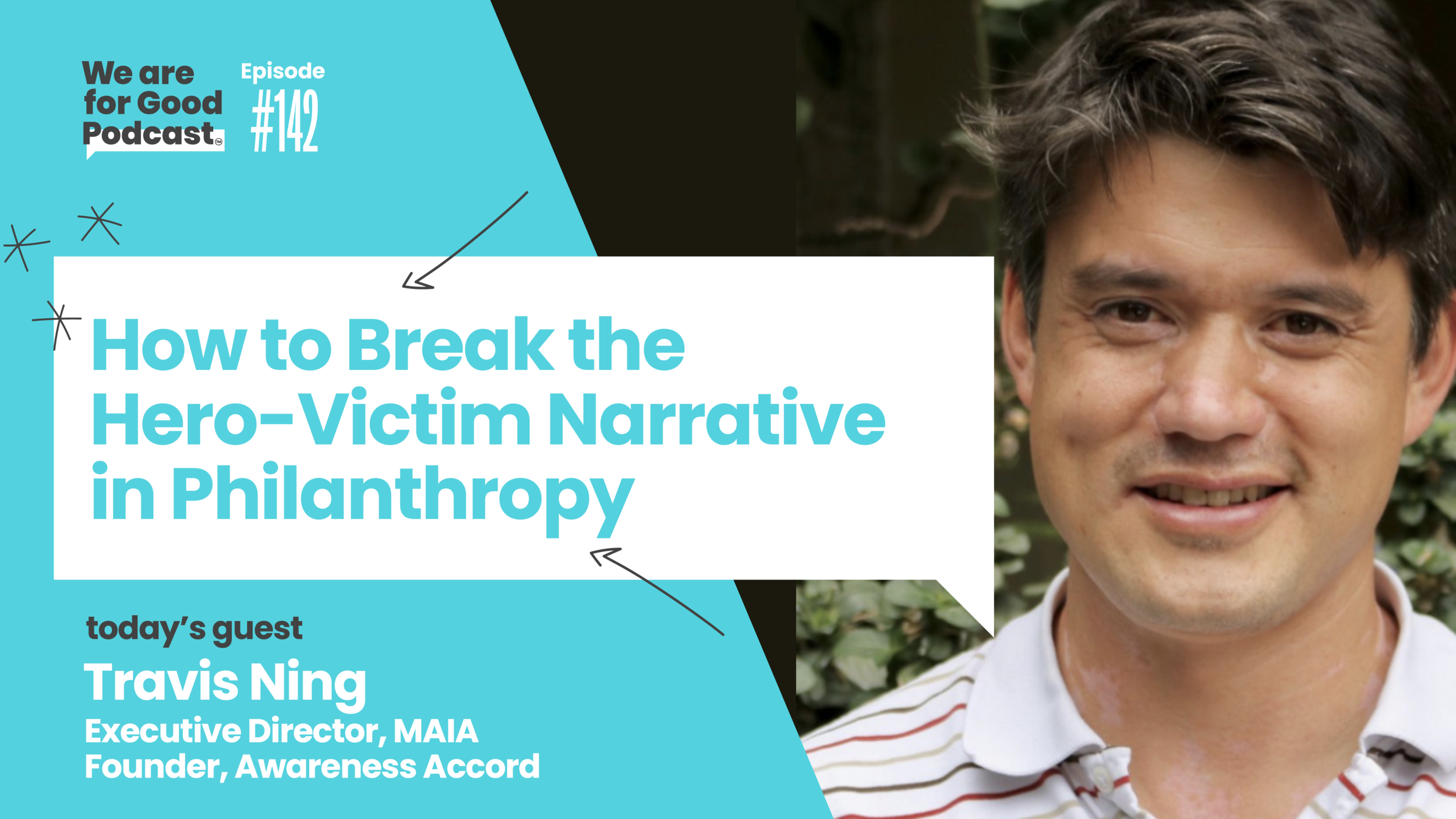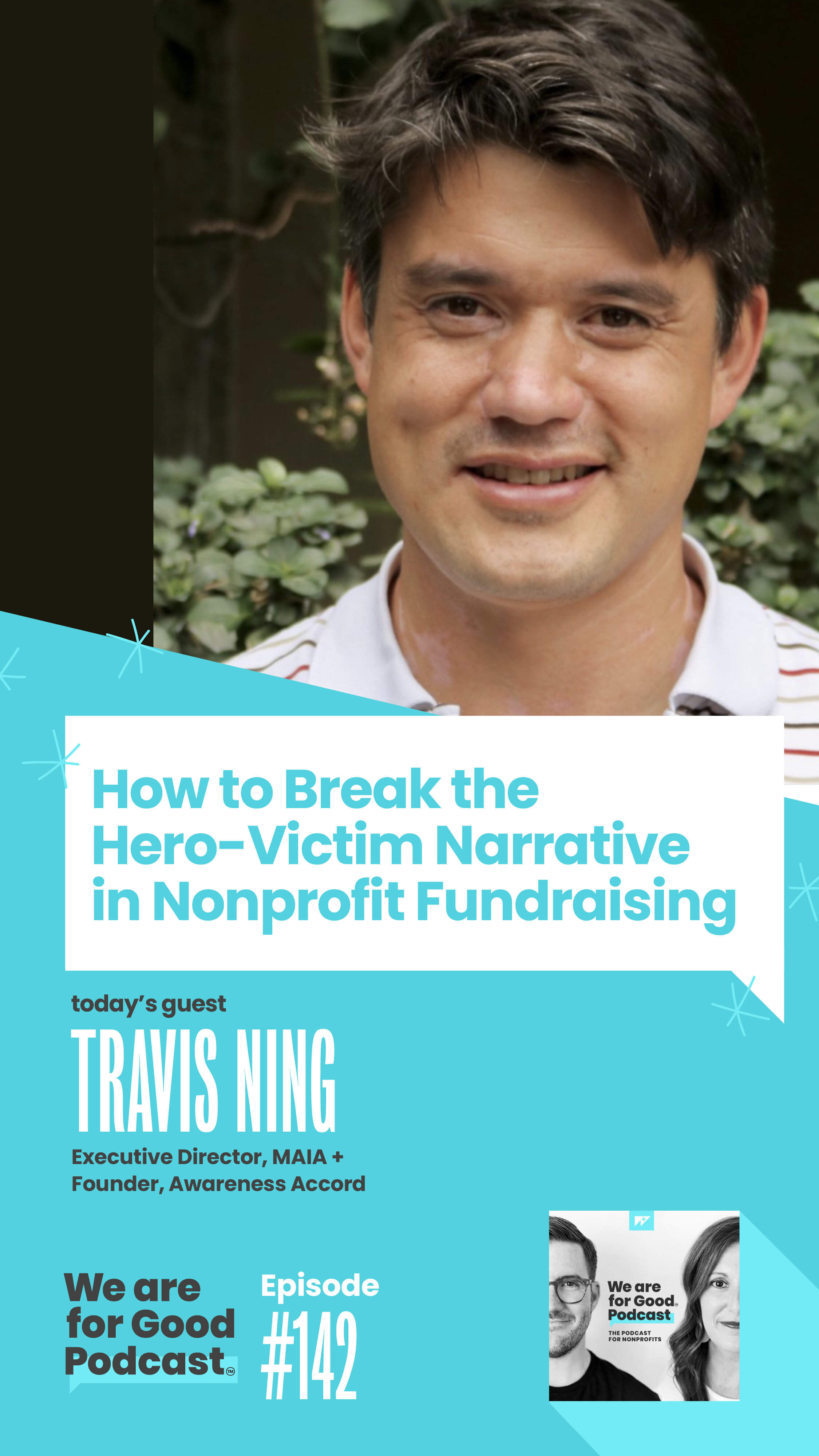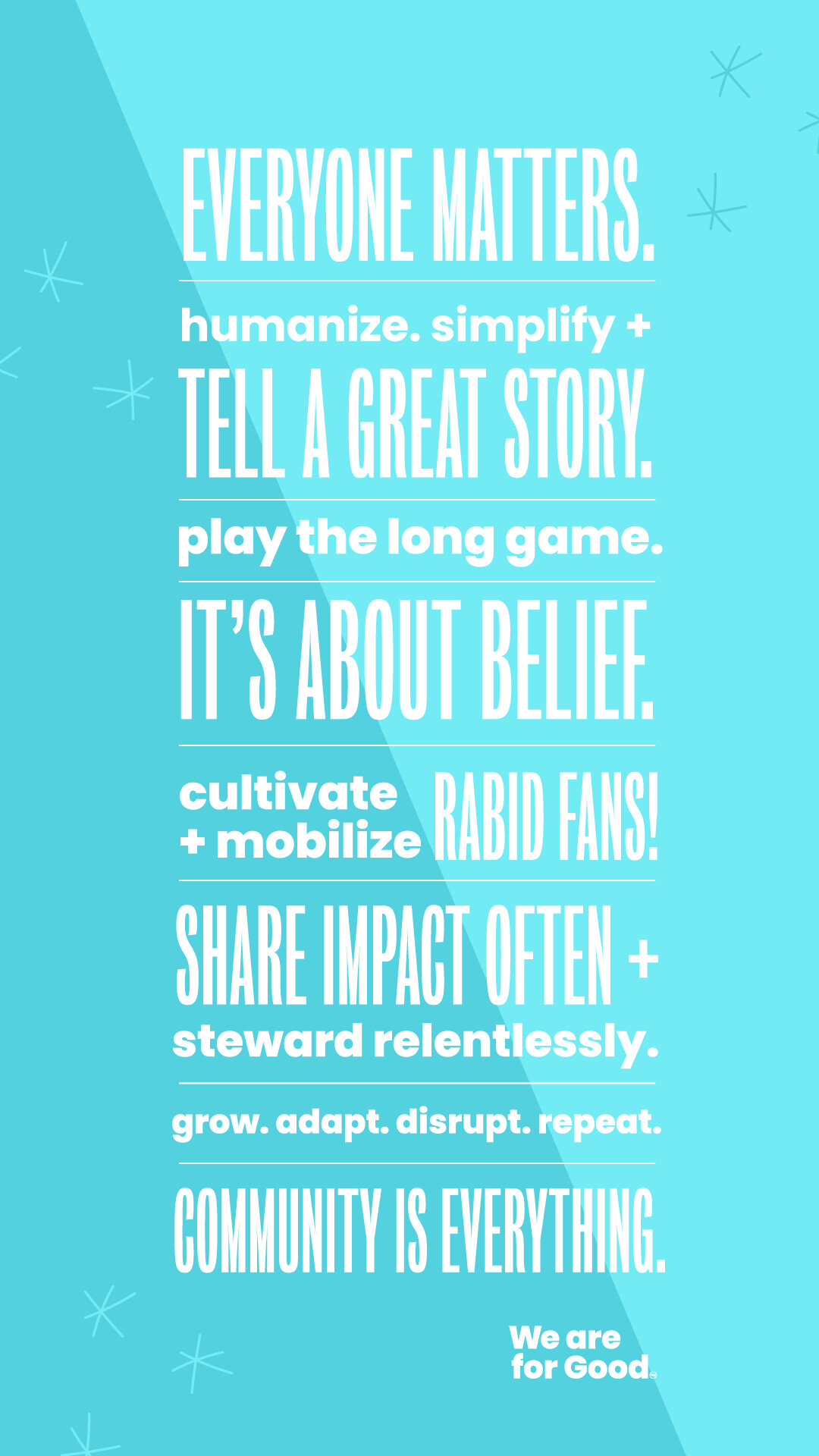142. Breaking the Hero-Victim Narrative in Philanthropy - Travis Ning
Listen to this episode
Overview
Meet Travis. This nonprofit ED spent years in the women’s microcredit movement in Asia and Latin America, which taught him a couple of critical lessons: how a mother has an unyielding commitment to improve her family’s situation, and how education plays a pivotal role in breaking free of cyclical poverty and making informed choices. We're talking about creating a launchpad for donors and fundraisers to talk about the power dynamics in their relationships that help break the victim-hero narrative. It's one of our most moving convos yet. Tune in!
Today’s Guest
Travis Ning, Executive Director, MAIA
Founder, Awareness Accord
“Guatemala statistically has the most need in the hemisphere, it’s the worst gender equity gap in the Americas. And at the very bottom of that ladder, that totem pole of empowerment, are the Mayan women. If you’re going to look anywhere to work on girls empowerment in this hemisphere, Guatemala seems to be ground zero in terms of need.”
Episode Transcript
Download Full Episode Transcript Here
Episode Highlights
Travis’s story and journey to where he is today (3:30)
The mission of MAIA: Unlocking and maximizing the potential of young women to lead transformational change (4:00)
The current state of Guatemala (10:00)
MAIA’s unique curriculum (13:20)
The Awareness Accord: how to be better at doing good (19:20)
Changing the power dynamics in philanthropy (20:00)
How to have difficult conversations around power dynamics with your donors and breaking the hero-victim narrative (29:00)
1. Align Expectations
2. Dignified Engagement
3. Can We Share the Story?
A moment of philanthropy in Travis’s life that deeply moved him (37:00)
Travis’s One Good Thing: Remember Karma. You never know what side of the coin you will find yourself on. Be generous. We're gonna need help, we always need help (42:00)
FREE QUIZ: What type of philanthropist are you?
“Today, over 129 million girls are currently missing out on an education, 96 million of whom should be enrolled in secondary school. In Guatemala, fewer than 20 percent of Indigenous girls graduate from high school, and only 2 percent go on to university. At MAIA, we believe in connecting talent to opportunity, ensuring that this population is no longer overlooked and that they have the tools they need to achieve their dreams.”
Powerful quotes
“What if she had an education that was specifically designed for her?” -Travis
“These are indigenous women that said, we could build a school for girls that's designed for them and their talents specifically for them and their talents. That's what MAIA has become, a school made for this unique population of 12 to 18 year old girls who are the first in their families to do anything beyond the second or third grade.” - Travis
“They're the first in their families to speak Spanish, so the first in their families to leave this village. We call them girl pioneers. It really is an incredible headwind that they're confronting for the rest of their lives, but also the possibilities that they represent not just for themselves and their families, but to create a precedent in Guatemala to show what is possible.” -Travis
“All of this happens because of the women running MAIA that are here. They were born to that situation themselves, and have defied all odds to get beyond that, and even to create a school that is now designed to defy odds. And all we really do on our end as fundraisers is to facilitate that process.” -Travis
“Guatemala statistically has the most need in the hemisphere, it's the worst gender equity gap in the Americas. And at the very bottom of that ladder, that totem pole of empowerment are the Mayan women. And so if you're going to look anywhere to work on girls empowerment in this hemisphere, Guatemala seems to be ground zero in terms of need.” -Travis
“Guatemala has a ton of problems. But it's sitting on top of a goldmine of talent. And it's just a question of figuring out how to connect up the points to where that talent can actually service and assert itself in a way that this country desperately needs.” -Travis
“I think that abundance mindset is something, in the international NGO context, that is sorely missing. As we all learned over 2020, we need to reframe how we're trying to achieve social change.” -Travis
“We found out the hard way that otherwise the girl will have to make a choice between this trajectory and her family, and we want her to be able to have both. We've designed a program that combines the girl and the family, so she doesn't have to choose between those two impossible choices. She can have both.” -Travis
“We've created that narrative a little bit, we have said, “You are the hero to our mission, you are the one that's making the difference in bringing this change to bear.” So it's a philosophical mind shift, to say, “Actually, when you come into this space, it's not all about you. In fact, it's, it's it's not even just about them and the people we're serving, it's about impact.”” -Becky
“It comes back down to dignity. And I think we can solve the problems but lose our dignity in the process. I do think it's 100% applicable to every cause, in just the ethics of how we're storytelling and how we're engaging and involving donors and our mission.” -Jon
“MAIA is one of the brightest stars in the night sky which we really feel that embodies what a girl pioneer should be and is.” -Travis
Connect with Travis
Connect with Maia
Website / Newsletter / Instagram / Twitter / Facebook / Blog
Rate, Review, & Follow on Apple Podcasts
Are you a fan of the We Are For Good Podcast? Please consider rating and reviewing our show! This helps us serve more do-gooders — just like you — grow their own impact uprising.
First time doing reviewing a podcast? Don’t sweat - it’s super easy! Click here, scroll to the bottom, tap to rate the show with stars, and then click “Write a Review.” We’d love to hear what you loved most about this episode!
While you’re there, if you haven’t done so already, would you consider subscribing to the podcast? We curate inspiring conversations weekly to help you do more for your mission (and the occasional surprise minisode too!) and if you’re not subscribed, you could totally out. Subscribe now!
Join the Good Community!
The We are for good community
This is a safe place for deeper conversations. While we love this podcast, it is a very one-sided dialogue. It is great for starting conversations, but not continuing them. You can find friends, colleagues, and others to champion alongside. We believe community is everything and we wanted to create a place where people could learn and thrive and grow together (and also have a whole lot of fun).
About our Sponsor Givebutter
Givebutter is Loved by over 30,000 nonprofits, student groups, sports teams, schools, companies, and individuals just like you, and PS: it’s also loved by the three of us who are superfans of their incredible giving platform. 💛
Givebutter helps you collect donations like a boss. It's never been easier to add a donate button to your website, collect dues from group members, or link a payment form to just about anything.
Re-think the way you run fundraising events. Sell tickets to your event while also collecting additional donations from attendees and supporters, with all of Givebutter's unique fundraising features built right on top. It’s buttery goodness at its finest, and it’s helping you do more for your mission online. Learn more at givebutter.com.
Watch the full Family Reach story mentioned in the midroll below! 🎉











